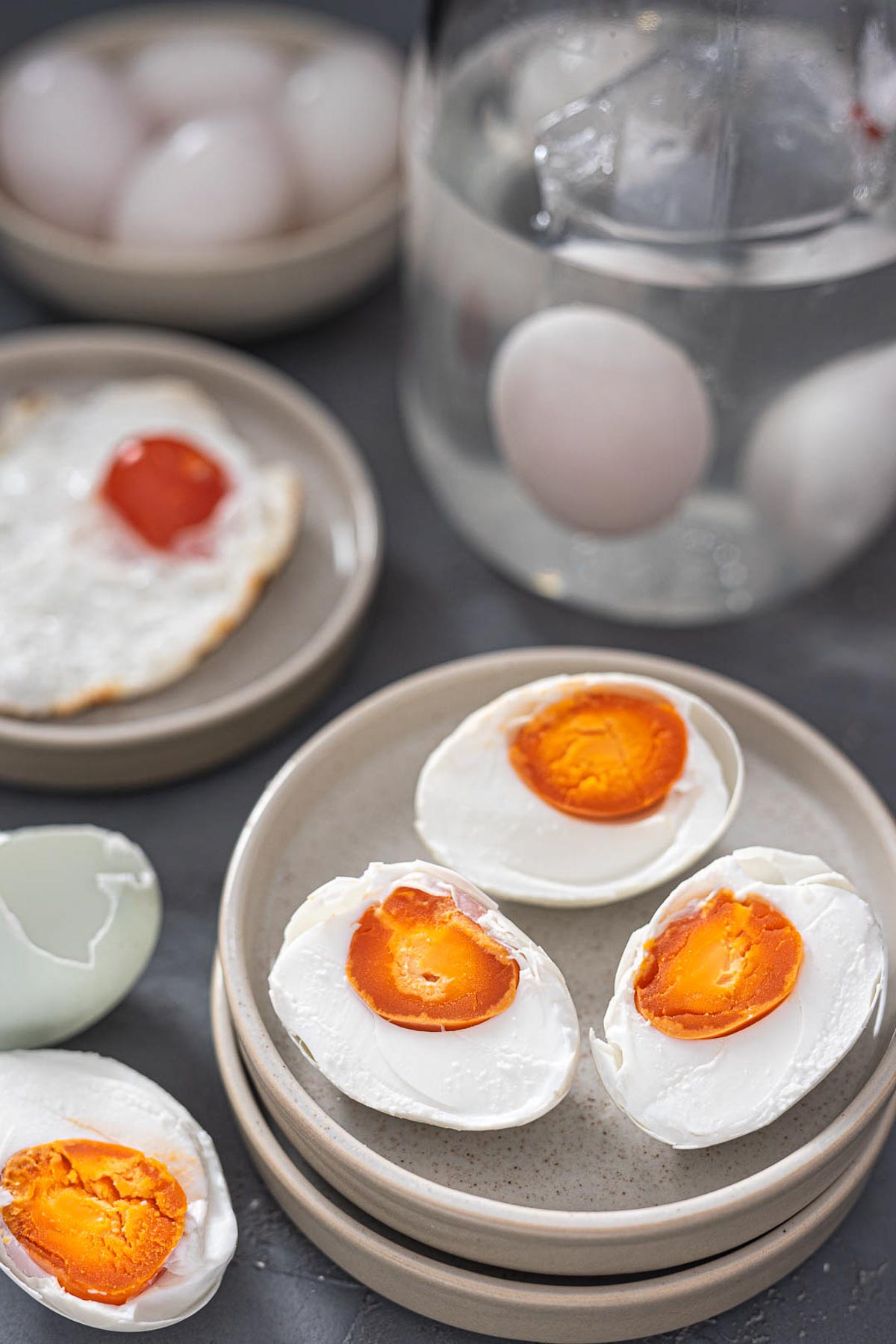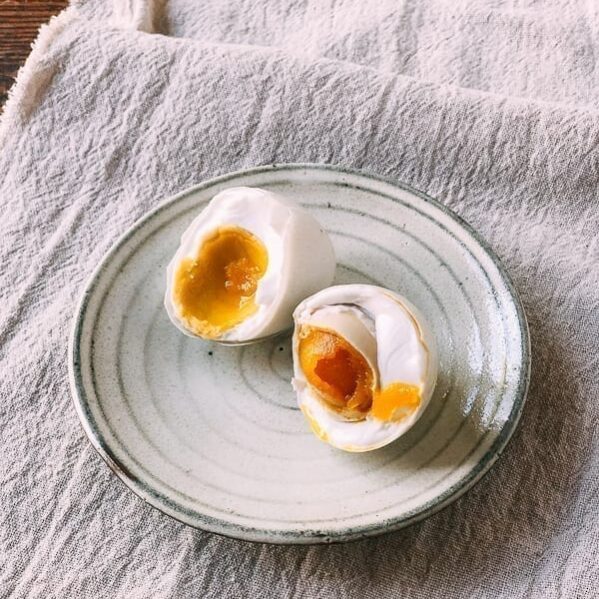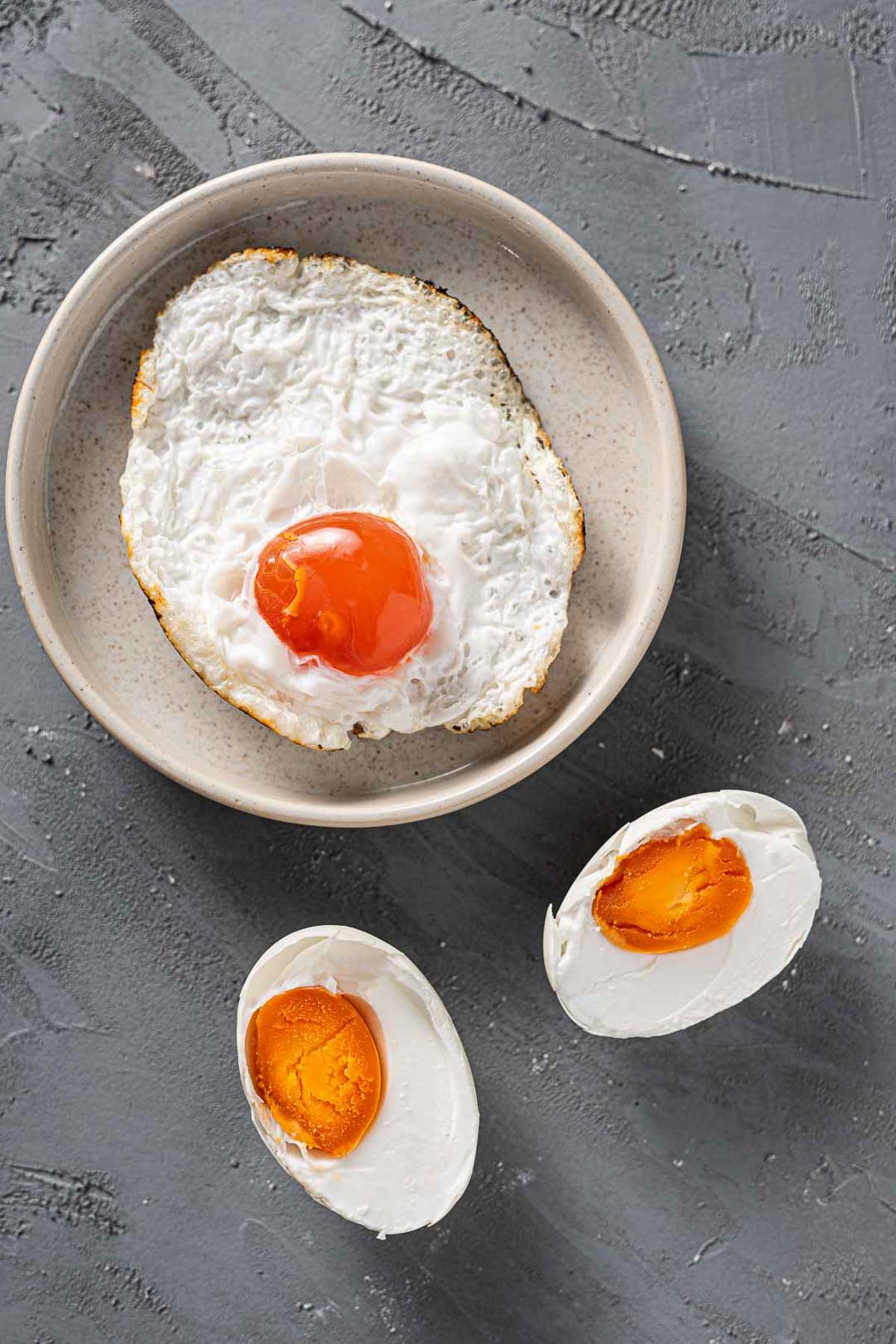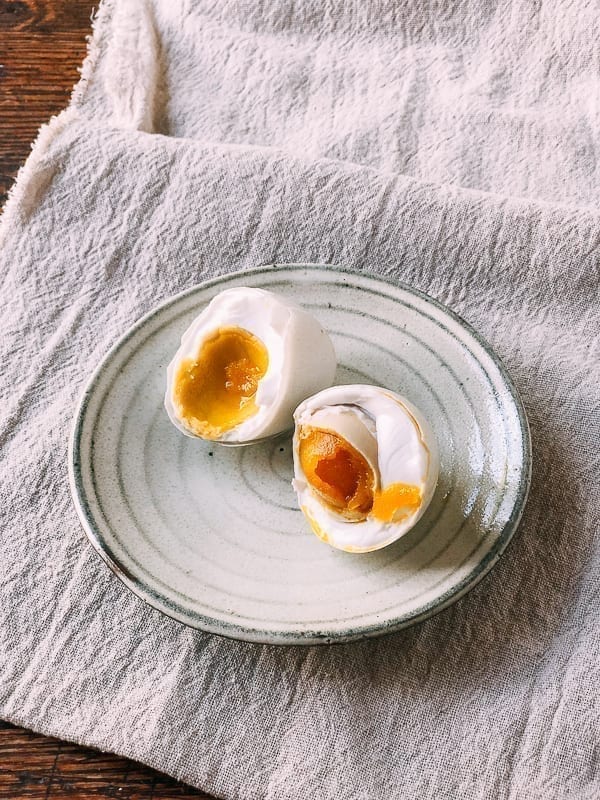What is
Salted Egg?
Salted egg is a preserved egg product, typically made from duck eggs that are cured in a mixture of salt and water, or coated in a salt paste before being buried in a salty mixture. The curing process primarily enhances the flavor of the egg, making it savory and slightly briny. The texture of the egg white becomes firmer, while the yolk transforms into a creamy, rich consistency, often noted for its vibrant orange hue.
Origins & History
Salted egg has its roots in Asia, particularly in Chinese, Filipino, and Vietnamese cuisines. This technique of preservation is believed to have been practiced for centuries as it was an efficient way to extend the shelf life of eggs before refrigeration was widely available. In Chinese cuisine, salted eggs are traditionally enjoyed during the Mid-Autumn Festival and are often served with rice congee or used in a variety of dishes.
Taste & Texture
The taste of salted egg is rich, creamy, and umami, with a noticeable salty and slightly mineral flavor from the curing process. The yolk is particularly flavorful and has a buttery mouthfeel.
Ingredients
Duck Eggs
Duck eggs are larger than chicken eggs and have a richer flavor and creamier texture. They are often used in the production of salted eggs due to their robustness and ability to hold up during the curing process.

Salt
Salt is the primary curing agent used to salt the eggs. It draws moisture out of the eggs, resulting in preservation and intense flavor.

Water
Water is used in the brining solution that helps dissolve the salt and evenly coat the eggs for the curing process.
This item may contain the following allergens:
Eggs

Images may not reflect the actual item.









:max_bytes(150000):strip_icc()/__opt__aboutcom__coeus__resources__content_migration__serious_eats__seriouseats.com__images__20110708-seriously-asian-duck-egg-primary-dcf471f012b845d8b24f38a1bc68ddd7.jpg)


